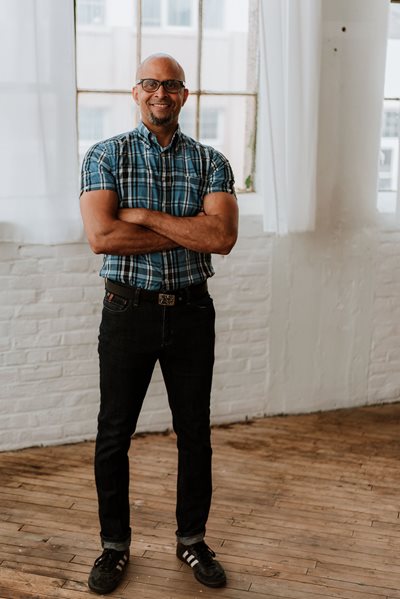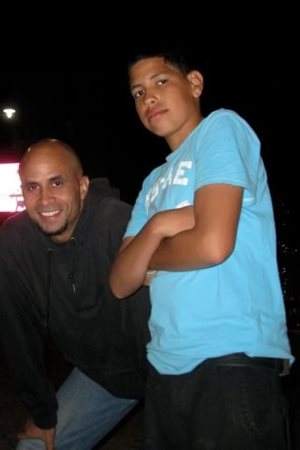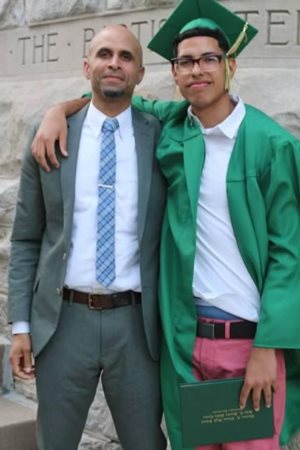People sometimes ask Dr. Bill McKinney, executive director of New Kensington Community Development Corporation (NKCDC), why he left anthropology, the field he studied in college and graduate school. His answer?
"I didn't," he explains. "I'm an anthropologist every day. My goal was never to be an academic; my goal was to make change."
McKinney lives and works in the Kensington area of Philadelphia, where he brings more than 25 years of experience to community development. It is an area that is at the epicenter of poverty, disinvestment, the housing crisis and the opioid epidemic. He says it's a community that has experienced systemic racism, and the pandemic amplified everything. As McKinney describes it: "It's a pandemic on top of a series of epidemics."
 In Kensington, 65% of renters are cost-burdened, meaning they spend more than 30% of their income on rent. The Philadelphia Inquirer reported in 2021 that no neighborhood had been more burdened by gun violence. Upper Kensington was also ranked last out of 46 Philadelphia neighborhoods when it came to health outcomes.
In Kensington, 65% of renters are cost-burdened, meaning they spend more than 30% of their income on rent. The Philadelphia Inquirer reported in 2021 that no neighborhood had been more burdened by gun violence. Upper Kensington was also ranked last out of 46 Philadelphia neighborhoods when it came to health outcomes.
But Kensington is also a community of hope and determination, McKinney says. It is one of the most racially and ethnically diverse neighborhoods in Philadelphia, with half of residents identifying as "some other race" or "two or more races" in the last U.S. Census. With residents leading the way, McKinney believes change will come.
Originally from Cleveland, Ohio, McKinney's first experience in housing and community development came while he was working on his master's degree at the University of Maryland and working in Baltimore's housing complexes through HOPE IV. Baltimore was "a crew city" and when the city tore down high rises and rehomed people, they didn't realize they were mixing rival crews, leading to an increase in violence. McKinney's job was to help ease tensions.
McKinney then moved to Philadelphia in 1996 to attend Temple for his Ph.D. in Urban Anthropology. Next, he worked for the Youth Violence Reduction Partnership. His assignment was to work with young people "who were most likely to kill or be killed. There was a large concentration of program participants in Kensington, so I spent a lot of time in this area." Kensington is home to more than 78,000 people, with 39% more children than the city average. "In the chaos," McKinney says, "I also saw the beauty; the human beings."
Everywhere, people were creating beauty, sometimes out of nothing. "I would argue that some of the most beautiful and innovative things in the world come from leftovers, be it barbecue or hip hop. We were taking what was left and we could rock the whole park."
McKinney bought a home in Kensington, and even when he started running a research center at the CUNY Graduate Center in New York, he returned to Philly on weekends. As part of his continued connection to the city and support of local organizations, he started mentoring middle school students. And as that became important to him, another thing became important: To stay.
"When I'm mentoring you, you know where I live. It was important to be a support." He is still connected to the people he started mentoring more than a dozen years ago.
A friend and mentor
 Jose Gutierrez was in 8th grade when he first met McKinney. "My friends were in a mentorship program and I was always with them," he says. So McKinney took him on, too.
Jose Gutierrez was in 8th grade when he first met McKinney. "My friends were in a mentorship program and I was always with them," he says. So McKinney took him on, too.
"We didn't grow up in the best neighborhood, but even at that age, I knew [McKinney] could have been somewhere else. He could have lived in the suburbs. But he stayed."
McKinney took Gutierrez and his friends to Applebee's on Friday nights. He also took them camping in Vermont and on trips to Pittsburgh. "Until then, all I knew was Philadelphia," Gutierrez recalls. "He showed me there was more out there. Since that time, I've been to the Bahamas and Mexico. I don't think I would have had the courage to do that if Bill hadn't shown me there were other places to go."
McKinney shared wisdom, too.
"Always have options so you don't get stuck."
"Never stop learning."
Gutierrez, now 28, remembers the day McKinney took out a pencil and paper and showed him and his friends the math for a minimum-wage job, encouraging them to strive for more. They did.
Gutierrez has a commercial driver's license and drives an 18-wheeler. He also has an electrician's certificate – his "just in case." And he and his girlfriend own their own  home in Northeast – a triplex. They live on one floor with their 6-month-old son, while renting out other floors to cover their mortgage.
home in Northeast – a triplex. They live on one floor with their 6-month-old son, while renting out other floors to cover their mortgage.
Gutierrez still sees McKinney often. Their mentorship relationship is more uncle and nephew now, he says. "He changed my life. He's the best person I've ever met."
'We have a lot to do'
In 2014, McKinney left his week-day job and returned to Philadelphia full time, working as executive vice president of The Food Trust, a nonprofit dedicated to making sure people have food and nutrition. He was a part of the neighborhood. But during the civil unrest that followed the death of George Floyd in May 2020, McKinney still felt helpless.
The unrest "happened out my front door," he says. "The buildings that burned, the stores that were shut down? Those were outside my front door. I came out the morning after and saw the president of the other community development organization in the area. He was sweeping."
That was Casey O'Donnell, president and CEO of Impact Services Corporation. McKinney remembers feeling a little envious that O'Donnell, at least, had a role in what was to come. When McKinney learned there was a search for a new executive director at NKCDC, he wrote to the board of directors. "I said 'I'm here. Let's do this.'" They hired him and he put together all he knew about racism and violence, increasing education and civic engagement. "You have to understand all the pieces," he says. "We have to be holistic and comprehensive in our approach or we're not going to be successful."
McKinney walks two blocks to work and two blocks home, gathering information about the community, listening when people talk. When things burn down, they can go one of two ways, he says. Either the wolves come in, or the community has an opportunity to rebuild. Rebuilding, "is something we've all been fighting for."
One step to rebuilding is collaboration. McKinney says partnerships are key, including with O'Donnell's organization. "Bill and I met in the street in front of a Rent-A-Center that was burnt down during the riots," recalls O'Donnell. "Firemen were putting out the last of the fire that morning."
Now they continue to meet twice a week to check in – minimum, O'Donnell says. "We usually end the week together reviewing progress, challenges, course corrections, etc." Collaborations include working together to deploy financial resources provided by the City of Philadelphia from a $7.5 million opioid settlement.
As they worked through plans for opioid funding, New Kensington reached out to the community for input, and got participation – 500 people, a full 10% of those in the community who had voted in the last election came together to share ideas. When they asked the community to engage, it was clear they understood the complexities of the problems – the path of narcotics through their neighborhoods, the people who were unhoused because of them, to name two examples – as evidenced in a recently released report: Planning KensingtonTogether: History, Context, Voices. When they asked the community members to offer solutions, they did.
McKinney sees many of the issues related to the opioid epidemic, "an epidemic that has been amplified by structural racism, classism and most peoples' desires to contain rather than solve the problem," he shared last year during a press conference at the city's opioid settlement press conference. He added that it would take hundreds of millions of dollars to transform Kensington.
But the settlement "will impact thousands of lives and will allow people to continue to establish a foundation that allows for continued and expanded support. Hopefully these specific investments will help those suffering from addiction, from being unsheltered, will help families and children who have suffered for the crime of living here, will help our schools and parks so we can have the same things that everyone in this room wants for themselves and their families."
McKinney believes that change is possible. "We have a lot to do," he declares.
But with a committed staff, they are doing it. Last year, NKCDC was approved for a Low-Income Housing Tax Credit building of 44 units. The nonprofit worked with a land bank and got clearance to build 17 single family houses. And they're strategizing to shelter those battling addiction. At the same time, they're working on strategies for the community's commercial corridor, with businesses run by people who live in the neighborhood and reflect the needs of the neighborhood.
"It's the community vision," McKinney says. "My own vision is for greater community self-determination and whatever we need to do to make that happen is why I'm here."
02/20/2024

